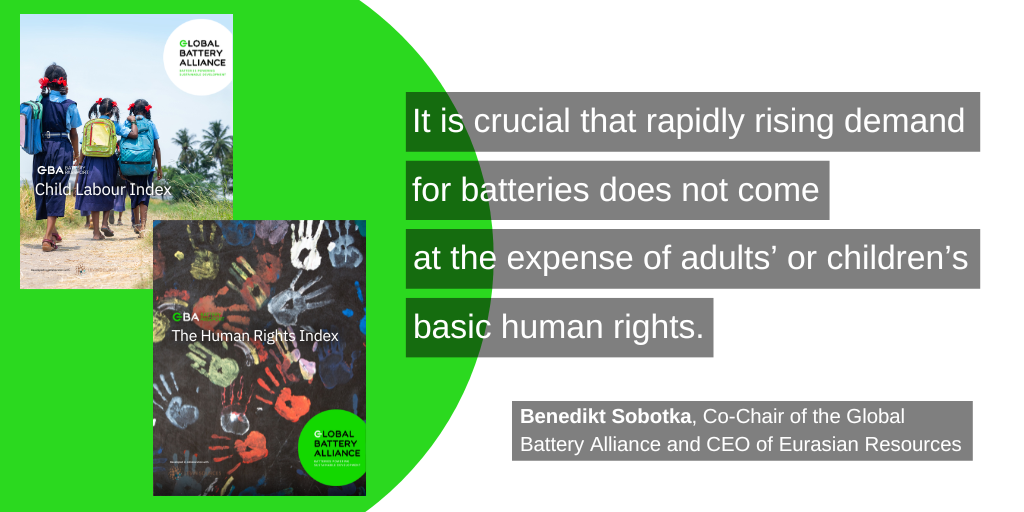Like many industries, the automotive sector faces significant human rights and environmental risks connected to their use of minerals and metals in vehicles. Levin Sources has worked with various stakeholders in the automotive industry since approximately 2020. Over that time, we’ve seen awareness of complexities in responsible sourcing of minerals and metals in this sector increase. A growing number of actors are seeking to work collaboratively across the value chain to jointly identify and tackle tough systemic issues that they can’t address single-handedly.
As pressures mount to shift to vehicles with a lower carbon footprint, expectations of the automotive sector to be more just and sustainable in this transition are growing. An increasing number of stakeholders are recognising that just because an electric vehicle puts out less greenhouse gas emissions overall does not mean the vehicle is fully “clean” – often because of harms to communities, workers and environments that occur across the full value chain of the vehicle’s production, use and disposal. The human rights and environmental impact of the batteries used in electric vehicles is also under increasing scrutiny, including from regulators.
To tackle these complex and systemic challenges, collaborative approaches between business, civil society and government are critical. In the automotive sector, Levin Sources works with a range of individual businesses and governmental bodies, as well as industry and multi-stakeholder groups, to help build a truly just and sustainable automotive sector that operates with respect for people and the environment across the entire production and use cycle of the vehicle.
Examples of Levin Sources’ work in the automotive sector include:
Building comprehensive value chain maps and risk profiles of 20 raw materials used in vehicles
Since 2021, we’ve partnered with Drive Sustainability and CSR Europe to develop the Raw Material Outlook, a publicly available database of 20 raw materials with in-depth, tier-by-tier insights about value chain actors, processes, and human rights and environmental risks and impacts. The profiles draw out salient issues at each tier of the value chain and cover both human rights and environmental topics. In addition to these profiles, Levin Sources provides Drive Sustainability members with insights about options for using leverage to tackle these risks, and has provided training for original equipment manufacturers (OEMs) and their suppliers about risk mitigation options, including going beyond sole reliance on auditing and certification schemes. These profiles of critical and transition minerals include aluminium, chromium, cobalt, copper, graphite, iron ore, leather, lithium, magnesium, manganese, molybdenum, natural rubber, nickel, niobium, rare earth elements, rhodium, tantalum, tin, silica and zinc.
- Key capabilities brought by Levin Sources: technical expertise in minerals value chains, their structures, and their human rights and environmental risks; research; expertise in developing innovative strategies for the exercise of leverage across complex value chains.
- Aspects of due diligence addressed: supply chain mapping, risk identification, risk prevention and mitigation.
Supporting the automotive sectors to address upstream human rights and environmental risks:
Since 2021, we have supported the German Sector Dialogue Automotive Industry, which is convened by the German Federal Ministry of Labour and Social Affairs with the aim of supporting businesses to implement effective human rights due diligence. Levin Sources has supported various workstreams around responsible sourcing of raw materials, with a common focus on strategies for downstream value chain actors to build and exercise leverage to tackle risks upstream.
- On lithium sourcing, we developed a strategy for downstream automotive actors to build and exercise leverage upwards in the lithium supply chain, and facilitated a multi-stakeholder dialogue process with large-scale lithium mining companies in South America and Southern Africa.
- On copper sourcing, we analysed voluntary audit and certification schemes’ fitness to effectively manage salient human rights and environmental issues in the upstream copper supply chain, and we authored a guidance note on risk mitigation measures that go beyond sole reliance on audits by collaborating with others as an expression of leverage to tackle complex supply chain risks.
- Key capabilities brought by Levin Sources: facilitation of constructive dialogue in multi-stakeholder settings; technical expertise in minerals value chains, their structures, and their human rights and environmental risks; deep understanding of the application of leverage as set out in the UNGPs and OECD Guidelines; extensive knowledge of existing risk mitigation approaches and how to strengthen them in minerals value chains; experience in the application of voluntary sustainability standards, including auditing and certification schemes.
- Aspects of due diligence addressed: risk prevention and mitigation, grievance mechanisms and remedy.
Supporting a cross-sector partnership to advance sustainability of batteries through a Battery Passport:
- From 2020-2023, Levin Sources assisted the Global Battery Alliance (GBA) in establishing their flagship indices of Human Rights and Child Labour, which were presented as part of the first ever Battery Passport Proof of Concept at Davos 2023. Acting as Human Rights and Child Labour Working Group Coordinator, Levin Sources facilitated constructive dialogue among stakeholders from business, government and civil society who brought diverse perspectives and motivations. Additionally, Levin Sources delivered an extensive review of existing human rights and child labour standards and tools, as well as leading practice. Levin Sources also advised on a theory of change, stakeholder engagement and resource mobilisation for the GBA. This involvement also extended to defining concepts related to piloting, scoring and the Key Performance Indicators (KPI) landscape for the Battery Passport.
- Since 2023, Levin Sources has carried out a research project for the GBA on the most pressing issues, bottlenecks, and opportunities for fostering more sustainable critical minerals value chains in the current global policy, regulatory and standards context. As part of this work, Levin Sources is preparing an analysis report that identifies priority areas for focus and identify actionable steps for change beyond the scope of the Battery Passport that either the GBA or other relevant stakeholders can address. To achieve this, Levin Sources conducted extensive stakeholder interviews both in-person, remote and via focus groups, and carried out an extensive literature review and analysis.
- Key capabilities brought by Levin Sources: technical expertise in responsible mining, sourcing and recycling of battery value chains including critical minerals; deep understanding of the geography of critical minerals value chains and related policy and standards; human rights and environmental due diligence; gap analysis of existing practices against international normative frameworks; mediation and stakeholder engagement; communication
- Aspects of due diligence addressed: management systems design, risk identification, risk prevention and mitigation, tracking effectiveness, reporting, remedy, and stakeholder engagement

Providing in-depth analysis and guidance to automotive companies regarding due diligence requirements of the EU Batteries Regulation:
In 2023 Levin Sources was commissioned by Drive Sustainability to conduct an analysis of the due diligence requirements of the EU Batteries Regulation. Our analysis breaks down the individual human rights and environmental due diligence requirements of the Regulation, describes their requirements as compared to the OECD 6-step framework for due diligence and the UN Guiding Principles on Business and Human Rights, and provides recommendations to automotive sector businesses regarding key areas for improvement to close the gap between common sector practices in due diligence and the due diligence requirements of the Regulation. We also work with individual companies from the automotive sector on carrying out due diligence to meet the requirements of the Regulation, and have facilitated dialogue convened by the Cobalt Institute regarding this due diligence implementation. Read more about our work on the Regulation here.
- Key capabilities brought by Levin Sources: human rights and environmental due diligence; differences between industry standards in responsible sourcing and global normative frameworks on responsible business conduct; expertise in common responsible sourcing practices in the automotive sector and how they compare to requirements under international normative frameworks and due diligence regulations; practical guidance for businesses on how to carry out due diligence in the supply chain.
- Aspects of due diligence addressed: embedding responsible business conduct; risk identification; risk prevention and mitigation; tracking performance; communicating efforts and results; remediation; stakeholder engagement
Supporting a battery manufacturer to exercise leverage with a critical mineral supplier:
In 2022 and 2023, Levin Sources provided strategic responsible sourcing guidance to a European electric vehicle battery manufacturer, supporting the company to exercise their leverage with a key critical mineral supplier regarding their human rights and environmental risk management. To do this, Levin Sources carried out comprehensive background research both in-country in Central Africa and remotely. Through a provenance risk assessment, they identified salient human rights, governance, and environmental risks inherent to the sector and specific to the manufacturer’s suppliers. The analysis included stakeholder and initiative mapping and identified key risks such as the labour rights of contracted workers, security presence on site, and transparency around environmental data. It also identified opportunities for exerting leverage to help address the root causes of risks outside of the supplier’s sole control. Based on Levin Sources’ recommendations, the manufacturer intends to include clauses into their contracts with the supplier, stipulating continuous improvement in addressing the main risks identified. This would include defining a reasonable timeline for changes and implementing a robust monitoring process. They also identified priority initiatives with which to engage locally, to support sustainable minerals development. Levin Sources also supported the client in ongoing exchanges with some of their largest investors regarding the aims and findings of the work.
- Key capabilities brought by Levin Sources: technical expertise in responsible sourcing of critical minerals; human rights and environmental due diligence; investor engagement; gap analysis of existing practices against international normative frameworks; supplier engagement and supplier management.
- Aspects of due diligence addressed: risk identification, risk prevention and mitigation, stakeholder engagement.
Supporting individual automotive companies to gather, manage and disclose information about human rights and environmental risks:
Beginning in 2021, Levin Sources has worked with different individual automotive sector companies to help them gather, manage and disclose information about value chain actors, activities, and human rights and environmental risks associated with individual raw materials in their value chains. A publicly-available example of this work is the Volkswagen Group’s 2022 Raw Materials Report.
- Key capabilities brought by Levin Sources: technical expertise in minerals value chains, their structures, and their human rights and environmental risks; research; information management; reporting and disclosure.
- Aspects of due diligence addressed: risk identification; communication and reporting.
Help tackle misconceptions around the sourcing of minerals and metals needed for the energy transition:
Levin Sources provided an evidence-based communication package focused on 13 common misconceptions about minerals and metals crucial to the transition to electric vehicles for ClimateWorks Foundation. Featuring examples from all along the supply chain, the resulting nuanced arguments covered topics such as carbon footprints, the presence of child labour in mining, and why deep-sea mining isn’t necessary to meet demand. The communication content is designed to be used to combat misinformation surrounding the energy transition.
- Key capabilities brought by Levin Sources: technical expertise in minerals value chains, their structures, and their human rights and environmental risks; research; information management; communicating about complex human rights and environmental issues.
- Aspects of due diligence addressed: risk identification; communication.




